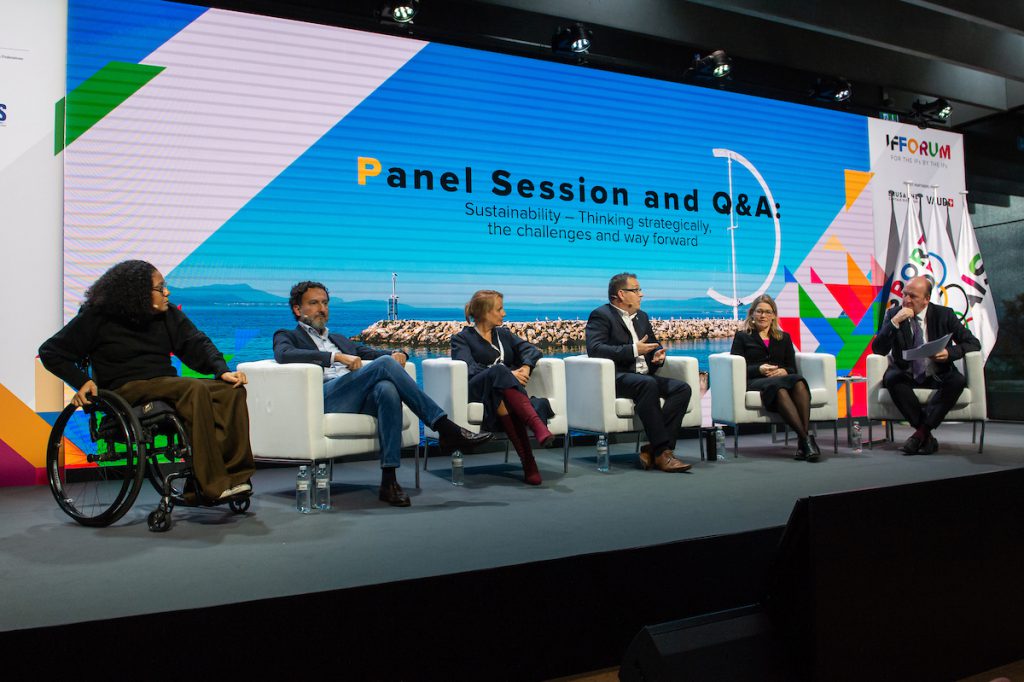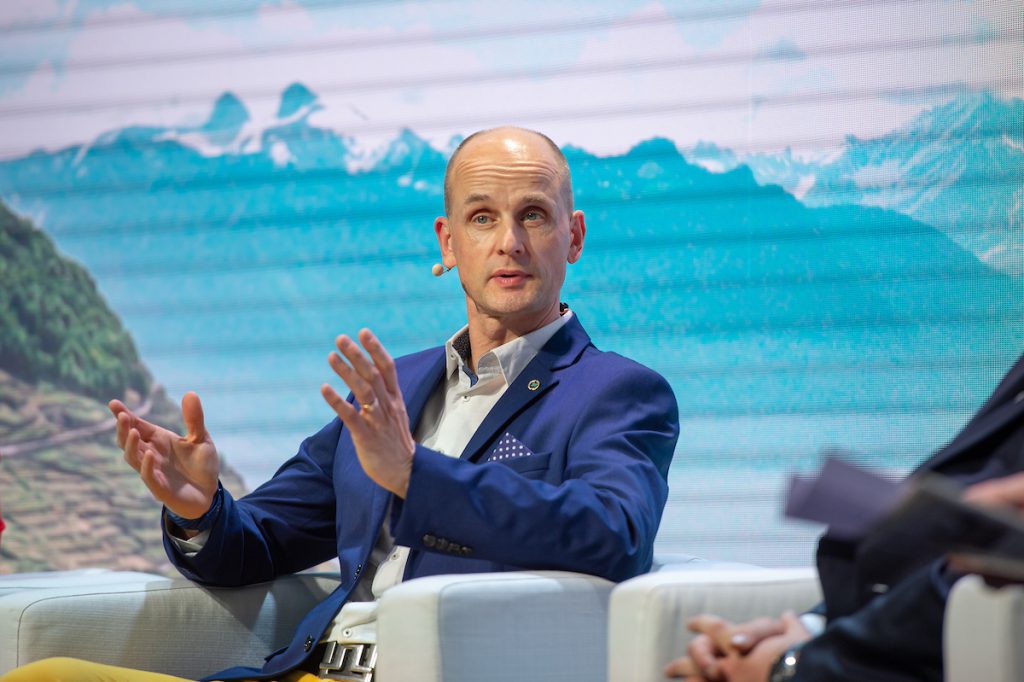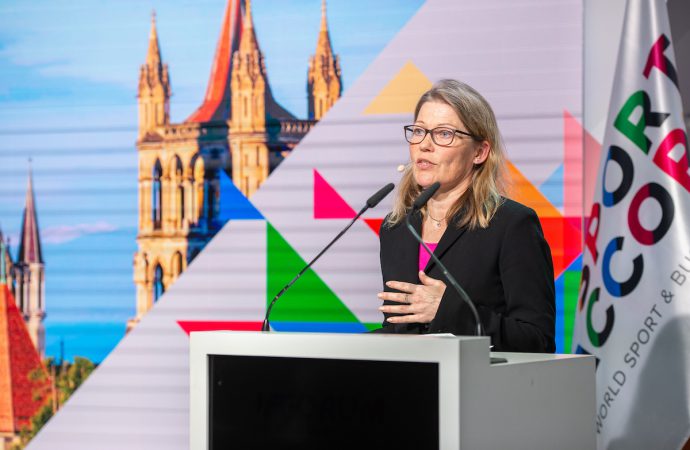Riikka Rakic, Tero Kalsta and Matthew Campelli demonstrate the need to work together, holistically, to achieve environmental goals crucial for sport’s future
Collaboration is the key to successfully integrating sustainability practices in sport.
That was the message from Riikka Rakic, head of sustainability at the International Biathlon Union (IBU) and GAMES project partner, at the IF Forum in Lausanne in November 2022.
During a presentation delivered to leaders from across the International Federation community and Olympic Movement, Rakic gave six examples of where the IBU is working with partners to address environmental sustainability issues collectively.
Underpinning this work is the IBU’s strategic framework, which has ‘sustainability’ as one of three underlying principles and the aim of reducing its carbon footprint by 50% by 2030 as one of three key objectives.
Sports organisations with similar aspirations have to count on the support of partners and other key stakeholders to make those objectives a reality, she said.

Alongside its partner Viessmann, the IBU established the Biathlon Climate Challenge, encouraging more than 3,600 fans from 40 countries to turn physical activity into 50,000 trees planted. Kilometres and hours of movement were tracked by Viessmann’s ViMove App, which were converted into trees for reforestation projects managed by TIST in Uganda and Viessmann’s own projects in Canada and Finland.
Rakic also touched on the IBU’s partnership with BMW, extended for four more years last October, that includes support with electric vehicles and sustainable charging.
But collaboration doesn’t have to start and stop with commercial partners. Rakic used her presentation to discuss the Circular Carbon Alliance – an Olympic sports partnership to enable carbon recycling, led by World Sailing and the IBU – an Erasmus+ funded sustainable snow management project, with three national federations, two specialist snow institutes and the Sustainable Mountain Alliance, as well as the IBU’s position as a sports partner within the GAMES project.
The GAMES project was represented twice more at the IF Forum.
During a panel session, titled ‘how to implement easy changes within your sustainability strategy’, Tero Kalsta, sales coordinator at the International Floorball Federation (IFF), discussed the ‘Green Goal’ concept at the Men’s World Floorball Championship 2022 in Zürich – an event audited by GAMES technical partner Sant’Anna School of Advanced Studies – and its ambition to reduce carbon emissions by 50% compared with the championship in 2018 in partnership with myclimate.

Matthew Campelli, sustainability partner for the GAMES project’s dissemination partner Touchline, delivered a ‘scene setter’, expressing the need for sports organisations, including International Federations, to become more strategic about environmental objectives.
“Sport addressing sustainability is about protecting our athletes, safeguarding our venues, giving our employees a sense of purpose and connecting with people beyond the field, track and arena,” he said during the talk.
“The time is now to accept environmental and societal issues as fundamental aspects of your organisation’s success, and to address them accordingly. Issues like climate change will continue to have transformative effects on sport, and our starting point must be to tackle them strategically and holistically.”
Photo credit: Robert Hradil/RvS.Media for IF Forum 2022
Follow GAMES project progress by signing up to its monthly newsletter on the GAMES website










Leave a Comment
Your email address will not be published. Required fields are marked with *